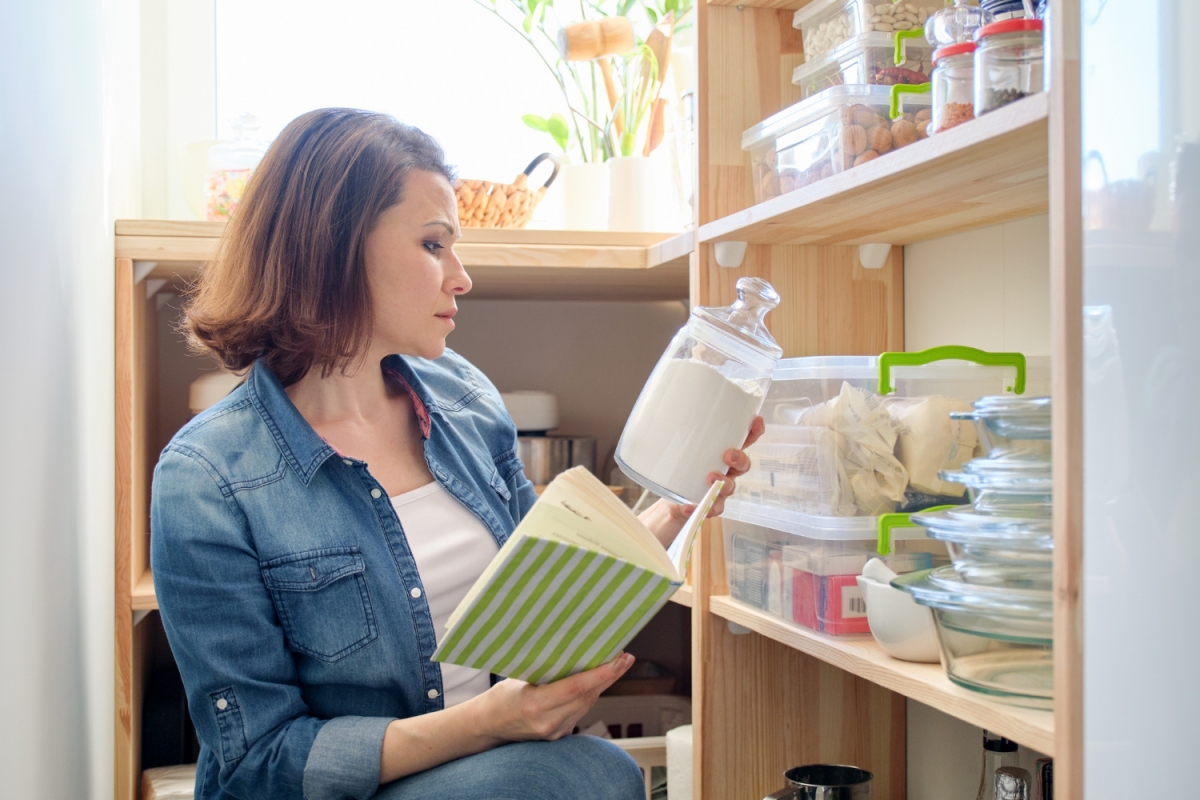
An indispensable element of a well-developed kitchen is the space in which we store food supplies. To arrange a pantry even a small area is enough for us, and it will certainly facilitate our daily functioning. How to prepare a pantry that will meet our expectations?
Doing shopping for supplies is a common practice in the Polish homes. The only drawback of such action is that food products are often not stored later in an appropriate manner. This obviously affects their quality, and the taste and smell leave much to be desired. As a consequence we throw away spoiled products, wasting food at the same time.
Arranging a larder should not cause you any major problems. A classic pantry can provide space for preserves, fresh fruit and vegetables and dry goods. Before any food goes in there, you should take care to prepare it in advance. The best temperature for storing food will be 10-15 degrees Celsius. A good choice will be to set aside a pantry space in the northern part of the house, in a relatively cool place. If you buy a large amount of frozen vegetables and fruits or are in the habit of heat treating other products, opt for a freezer. No light should enter the room if you plan to store animal products such as eggs or milk. It is mandatory that the surface is dry, as moisture negatively affects the quality of food
Storing cleaning utensils and food in the same place carries the risk of mixing odors. To prevent this from happening, think about buying a plant hormone absorber to speed up the ripening of fruits and vegetables.
Loose products such as flour, rice or groats must be placed in containers that guarantee an airtight seal. An unsealed package is not a problem because it is not accessible at any point. The problem arises when we open the product and put it on the shelf. An unsealed package of easily accessible food is a paradise for food moths. It is worth getting plastic containers, which guarantee us a precise seal and protection against microorganisms.
>> See also: What to do with leftover food?
Regularly check the contents of the cupboards and monitor their cleanliness. If you have noticed that the groats have spilled, do not delay in taking care of the order. Bacteria and mold will settle in your pantry very quickly if you don’t control it.
A cool place in the pantry, will be suitable for storing potatoes. Don’t cluster them in sealed bags with no air flow. Beets, potatoes, or onions placed in such packaging, quickly lose quality. All you need is a wooden box that allows air to flow in from all sides to your vegetables. You can also place the box in your garage if you have one. The most important thing is to keep it cool and the sun’s rays out of the room
You can safely place canned vegetables such as tomatoes, peas, corn on a shelf in your pantry as long as they are not open. The same goes for canned goods, jarred sauces or hermetically sealed meals. When you first open the product, place it in the refrigerator. On all packages you have information on how a particular victual should be stored. Most of them only need room temperature
Spices or natural coffee put in airtight jars, which you can put in the kitchen. Such products quickly lose quality if they are open and have access to air.
Good organization of space in the pantry will help you when preparing meals. The most important thing is to keep it clean on a regular basis and dispose of stale products. If jarred sauces, canned goods, or tins have been sitting on the shelf for a long time, make sure they are not expired.